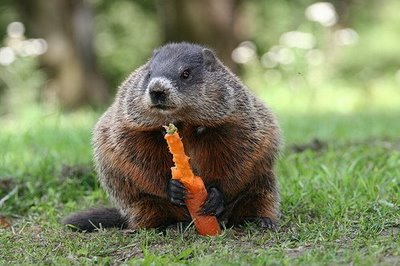 Dr. Ted Bunn, UR Department of Physics, nominated our word. I have always thought of the term in relation to the raccoons and possums, those banes of my chicken flock, or groundhogs, terrors of my garden. Without going into the gory details, let’s just say that as the light fails or grows, I have violently curtailed many of these creatures’ crepuscular activities. Such animals are usually only spotted at dawn or dusk, very rarely in broad daylight. The same goes for the red fox that helps me control their populations. It can best be observed at the verge of the forest at twilight.
Dr. Ted Bunn, UR Department of Physics, nominated our word. I have always thought of the term in relation to the raccoons and possums, those banes of my chicken flock, or groundhogs, terrors of my garden. Without going into the gory details, let’s just say that as the light fails or grows, I have violently curtailed many of these creatures’ crepuscular activities. Such animals are usually only spotted at dawn or dusk, very rarely in broad daylight. The same goes for the red fox that helps me control their populations. It can best be observed at the verge of the forest at twilight.
Our word means associated with, or active in, twilight. The Oxford English Dictionary Online has examples dating back as far as the 17th Century, and these add the sense of “indistinct” to the adjective in a way we would never say today, such as this beauty from 1860, “The crepuscular realm of the writer’s own reveries.”
For animals, the word makes sense; creatures that bet their lives upon not being spotted by predators going on two legs, four, or a set of wings need to do their foraging in dim light.
I like the word because of its “mouthfeel”: it creeps over the tongue like a critter in tall grass, slinking about for an unearned meal. As with similar words, we have a Latin ancestor, crepusculum. The verb and noun “creep,” however, come from much further north; there’s Anglo-Saxon ancestry there. By accident both words could be used for similar situations, with an unknown animal creeping around on its crepuscular rounds, at least until the patient farmer or fox spots it.
Nominate a word by e-mailing me (jessid -at- richmond -dot- edu) or leaving a comment below.
See all of our Words of the Week here.